-
Amethyst Purple Basil Plants for Sale
Ocimum basilicum
Basil 'Amethyst' is a stunning twist on classic Genovese basil with its deep purple leaves that brighten any garden or kitchen. Beyond its beauty, this herb is known for its delightful aroma and flavor, perfect for enhancing savory pastas, pizzas, and sauces. Use its vibrant leaves as a garnish or enjoy them fresh with olive oil, mozzarella, and tomatoes.
In addition to its culinary uses, 'Amethyst' basil offers medicinal benefits, such as soothing upset stomachs and making refreshing teas. It's also an excellent natural pest deterrent, helping protect your garden.
Keep in mind that 'Amethyst' basil isn't cold tolerant, so bring it indoors during chilly months to enjoy its flavor and color year-round. Transform your culinary creations with this enchanting herb!
-
-
Amethyst Purple Basil Plants for Sale
Ocimum basilicum
Basil 'Amethyst' is a stunning twist on classic Genovese basil with its deep purple leaves that brighten any garden or kitchen. Beyond its beauty, this herb is known for its delightful aroma and flavor, perfect for enhancing savory pastas, pizzas, and sauces. Use its vibrant leaves as a garnish or enjoy them fresh with olive oil, mozzarella, and tomatoes.
In addition to its culinary uses, 'Amethyst' basil offers medicinal benefits, such as soothing upset stomachs and making refreshing teas. It's also an excellent natural pest deterrent, helping protect your garden.
Keep in mind that 'Amethyst' basil isn't cold tolerant, so bring it indoors during chilly months to enjoy its flavor and color year-round. Transform your culinary creations with this enchanting herb!

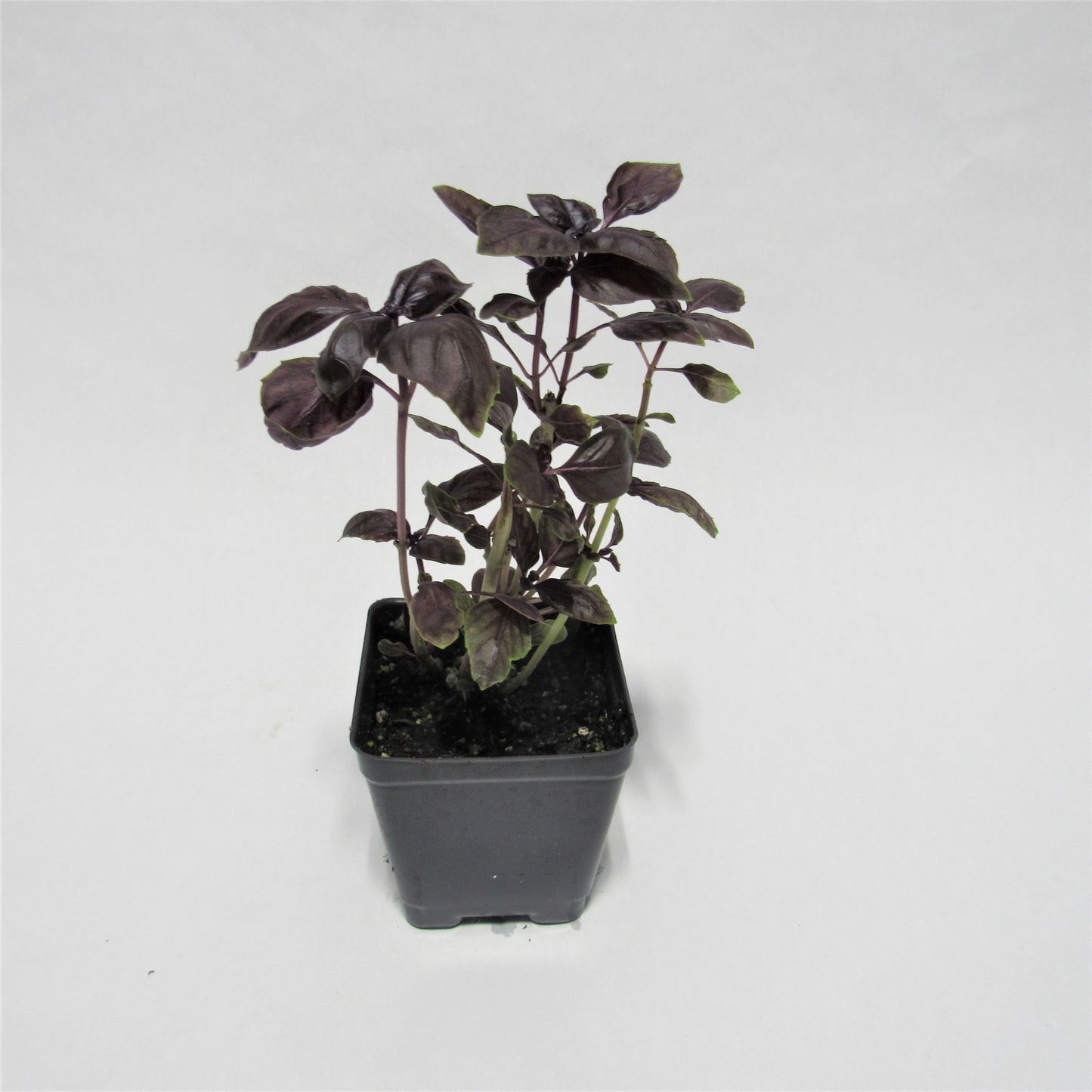
What’s included
Included items will appear here once configured.
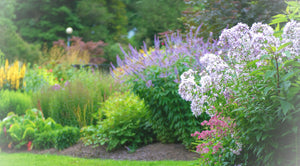
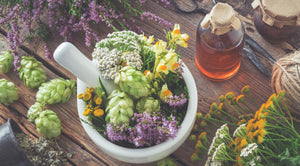
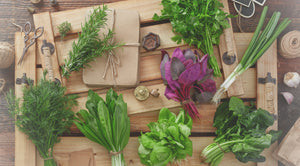
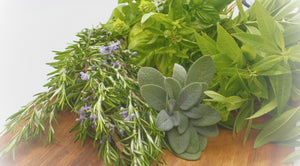
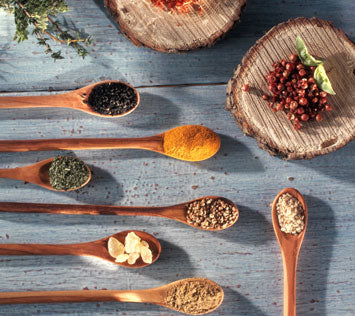
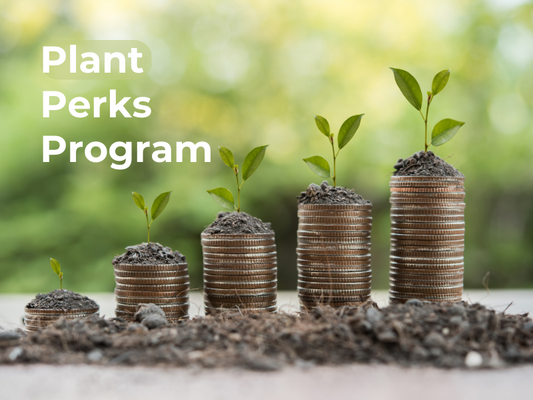

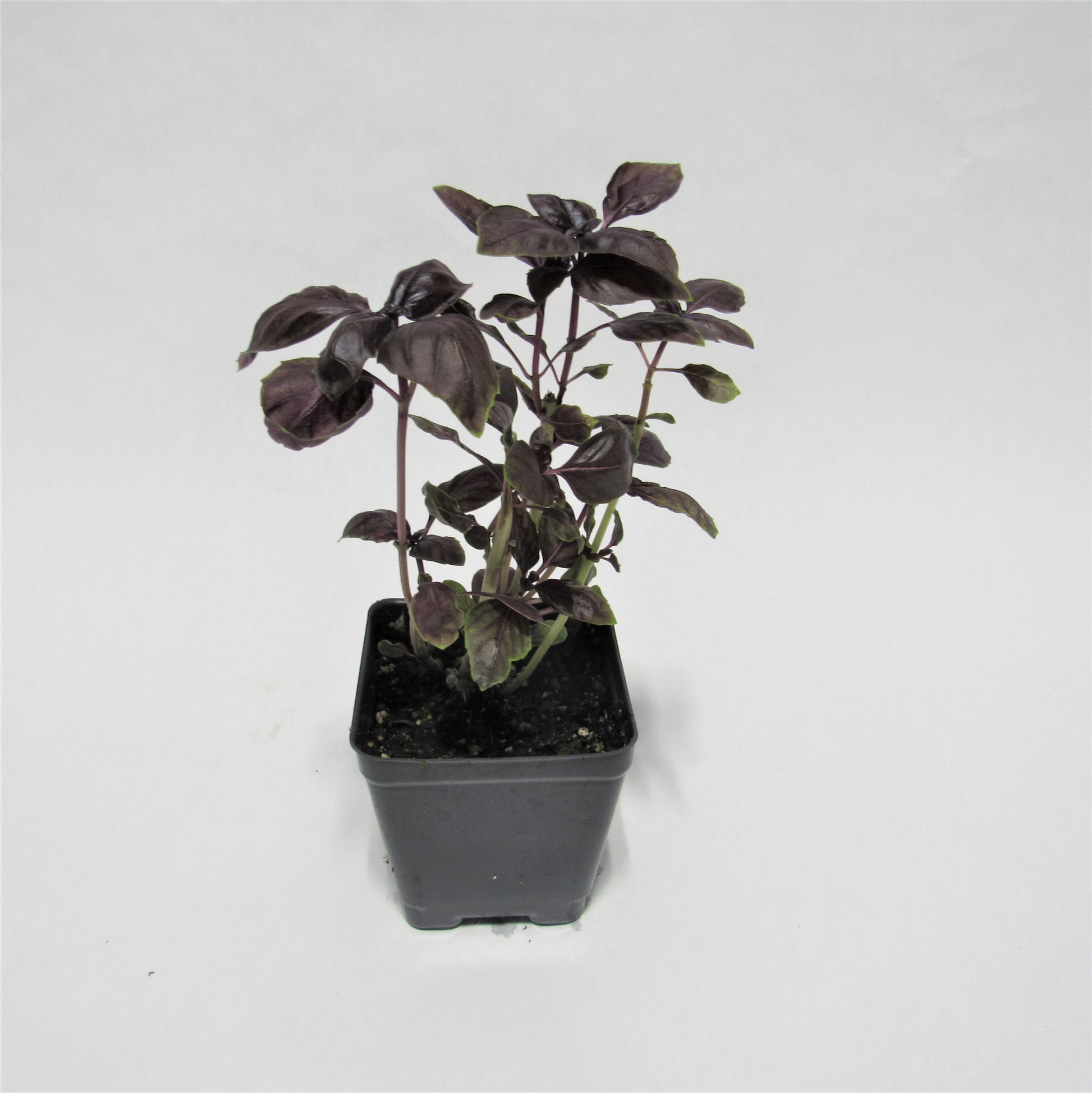



 Culinary
Culinary
 Aroma
Aroma
 Container
Container
 Pollinator
Pollinator
 Indoor
Indoor
 Butterfly
Butterfly